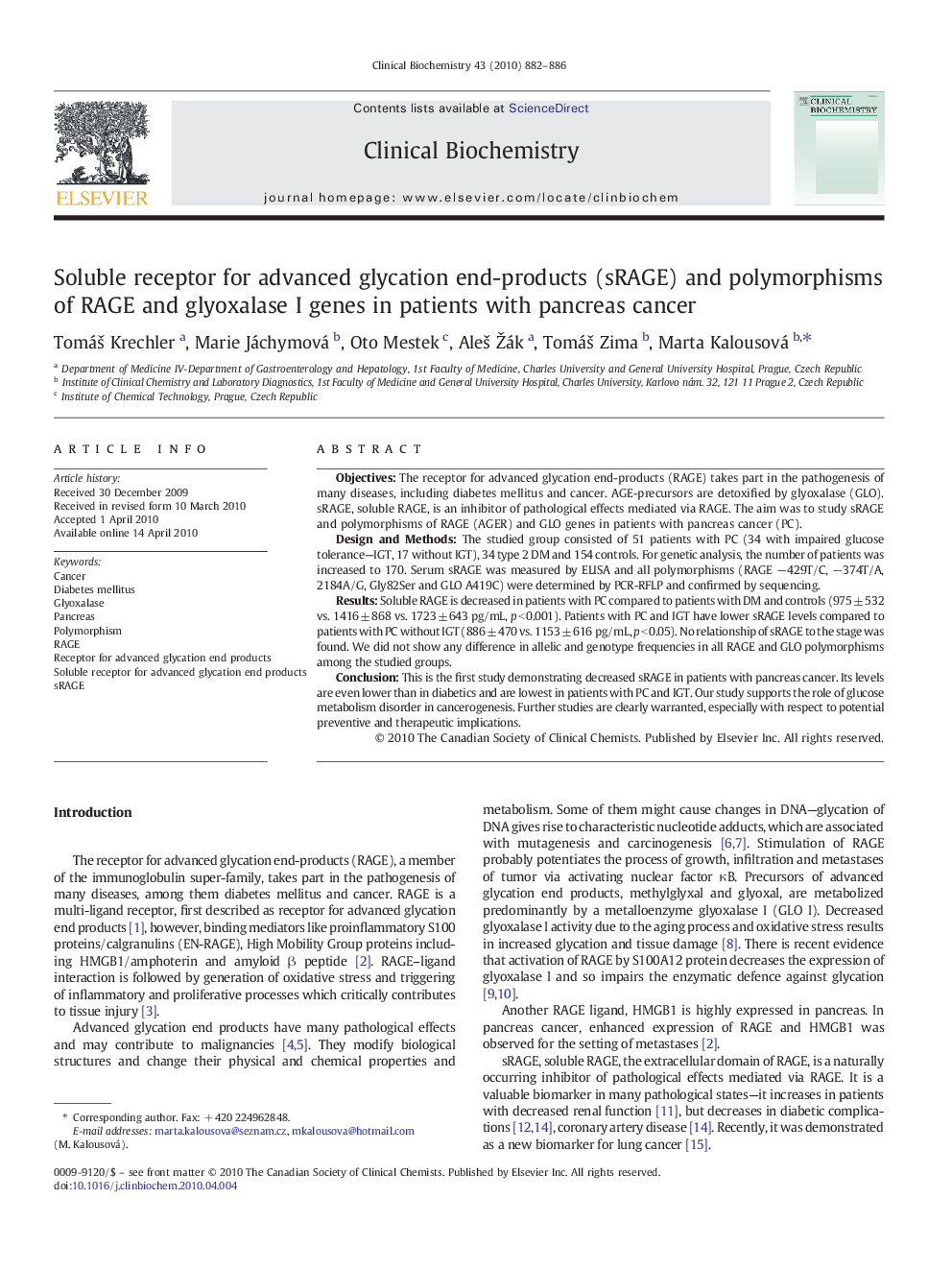| Article ID | Journal | Published Year | Pages | File Type |
|---|---|---|---|---|
| 1969679 | Clinical Biochemistry | 2010 | 5 Pages |
ObjectivesThe receptor for advanced glycation end-products (RAGE) takes part in the pathogenesis of many diseases, including diabetes mellitus and cancer. AGE-precursors are detoxified by glyoxalase (GLO). sRAGE, soluble RAGE, is an inhibitor of pathological effects mediated via RAGE. The aim was to study sRAGE and polymorphisms of RAGE (AGER) and GLO genes in patients with pancreas cancer (PC).Design and MethodsThe studied group consisted of 51 patients with PC (34 with impaired glucose tolerance—IGT, 17 without IGT), 34 type 2 DM and 154 controls. For genetic analysis, the number of patients was increased to 170. Serum sRAGE was measured by ELISA and all polymorphisms (RAGE −429T/C, −374T/A, 2184A/G, Gly82Ser and GLO A419C) were determined by PCR-RFLP and confirmed by sequencing.ResultsSoluble RAGE is decreased in patients with PC compared to patients with DM and controls (975 ± 532 vs. 1416 ± 868 vs. 1723 ± 643 pg/mL, p < 0.001). Patients with PC and IGT have lower sRAGE levels compared to patients with PC without IGT (886 ± 470 vs. 1153 ± 616 pg/mL, p < 0.05). No relationship of sRAGE to the stage was found. We did not show any difference in allelic and genotype frequencies in all RAGE and GLO polymorphisms among the studied groups.ConclusionThis is the first study demonstrating decreased sRAGE in patients with pancreas cancer. Its levels are even lower than in diabetics and are lowest in patients with PC and IGT. Our study supports the role of glucose metabolism disorder in cancerogenesis. Further studies are clearly warranted, especially with respect to potential preventive and therapeutic implications.
